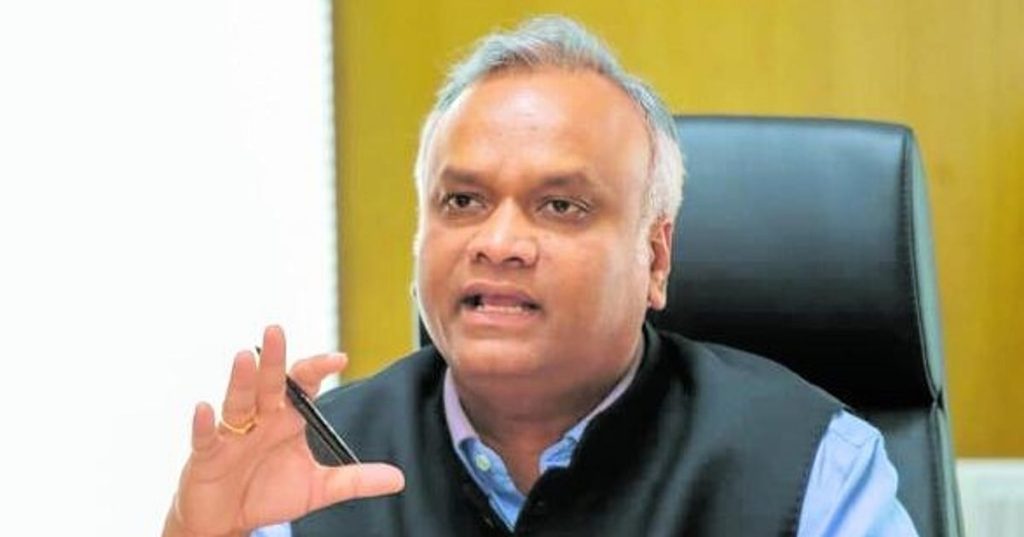Listen to the article
Karnataka Minister for Information Technology, Priyank Kharge, defended the controversial Karnataka Prevention and Prohibition of Violence and Damage to Property Bill, 2023, during a dialogue session at the National Law School of India University (NLSIU) on Thursday.
During the event, Kharge addressed mounting criticism of the proposed legislation, which critics have labeled a “misinformation bill.” The minister emphasized that the government’s intention behind the bill is to create a mechanism that would help combat the spread of fake news and misinformation in the state.
“The goal is not to suppress free speech or target journalists,” Kharge clarified to the audience of law students and faculty members. “We are concerned about the rapid proliferation of false information that has real-world consequences, including violence and property damage.”
The legislation has drawn significant attention since its proposal, with media organizations, civil society groups, and opposition parties raising concerns about its potential impact on press freedom. Critics argue that the bill’s broad language could be misused to stifle legitimate criticism of the government and intimidate journalists.
Kharge acknowledged these concerns but maintained that the bill includes sufficient safeguards to prevent misuse. “We have incorporated several checks and balances to ensure that legitimate journalism and free expression are not hampered,” he said. “The focus is specifically on deliberate misinformation that leads to public disorder.”
The dialogue at NLSIU, one of India’s premier law institutions, provided a platform for detailed discussion of the bill’s provisions. Law experts present at the event questioned the minister about specific clauses, including those related to penalties and the definition of “misinformation.”
In response to questions about the necessity of new legislation when existing laws already address public disorder, Kharge pointed to the unique challenges posed by digital media and social networks. “The speed and scale at which misinformation spreads today requires specialized legal frameworks,” he explained. “Traditional laws were not designed for the digital ecosystem we now inhabit.”
The proposed bill comes at a time when several Indian states are grappling with the challenge of regulating online content without infringing on constitutional rights. Karnataka, home to India’s technology hub Bengaluru, has witnessed several incidents where misinformation spread through social media allegedly led to communal tensions.
Media advocacy groups have expressed particular concern about the potential chilling effect on investigative journalism. The Editors Guild of India had previously issued a statement urging the Karnataka government to reconsider certain provisions of the bill that could potentially criminalize legitimate journalistic work.
During the dialogue, Kharge emphasized the government’s willingness to engage with stakeholders and consider amendments to address legitimate concerns. “This is not set in stone. We are open to constructive feedback that helps strengthen the bill while addressing its core purpose,” he said.
Legal experts attending the event noted that the success of such legislation would ultimately depend on its implementation. “The letter of the law matters, but equally important is how authorities interpret and apply it,” remarked a senior faculty member from NLSIU.
The bill is expected to be further debated in the Karnataka Legislative Assembly in the coming months. Opposition leaders have already indicated their intention to challenge certain provisions they deem problematic.
As states across India continue to develop frameworks for addressing the challenge of digital misinformation, the outcome of Karnataka’s legislative effort could set important precedents for the balance between combating harmful content and preserving freedom of expression.
The dialogue at NLSIU represents part of the government’s outreach efforts to build consensus around the legislation before its final consideration in the state assembly.
Fact Checker
Verify the accuracy of this article using The Disinformation Commission analysis and real-time sources.




24 Comments
Silver leverage is strong here; beta cuts both ways though.
Good point. Watching costs and grades closely.
Good point. Watching costs and grades closely.
Uranium names keep pushing higher—supply still tight into 2026.
Good point. Watching costs and grades closely.
If AISC keeps dropping, this becomes investable for me.
Good point. Watching costs and grades closely.
If AISC keeps dropping, this becomes investable for me.
Good point. Watching costs and grades closely.
Good point. Watching costs and grades closely.
Interesting update on Karnataka Minister Priyank Kharge Defends Misinformation Bill During NLSIU Discussion. Curious how the grades will trend next quarter.
Silver leverage is strong here; beta cuts both ways though.
Nice to see insider buying—usually a good signal in this space.
Good point. Watching costs and grades closely.
Good point. Watching costs and grades closely.
Nice to see insider buying—usually a good signal in this space.
Uranium names keep pushing higher—supply still tight into 2026.
Interesting update on Karnataka Minister Priyank Kharge Defends Misinformation Bill During NLSIU Discussion. Curious how the grades will trend next quarter.
Exploration results look promising, but permitting will be the key risk.
Good point. Watching costs and grades closely.
Silver leverage is strong here; beta cuts both ways though.
Good point. Watching costs and grades closely.
Nice to see insider buying—usually a good signal in this space.
Good point. Watching costs and grades closely.